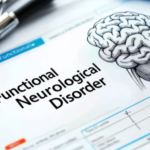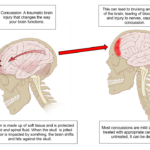CAN STRESS AND MUSCULAR DISCOMFORT COEXIST?
A large number of people in society experience chronic pain, which is a serious and crippling issue that lowers productivity and raises healthcare expenses. The problems of general fatigue, exhaustion, and chronic fatigue all prevent us from moving forward. Superior performance.
According to research, some people with chronic pain also have coexisting psychiatric disorders. In a 2005 study by researchers from the Universities of Washington, Harvard, and North Carolina, more than 68% of participants in a sample size of about 5700 patients with chronic spine pain also had another pain condition, and 35% had a coexisting mental disorder.
It is established that the fatigue and physical issues linked to chronic spinal pain are significantly influenced by this co-occurring pain and mental condition.
Higher stress levels (such as concern, tension, and lack of happiness) were associated with longer pain durations, more pain locations, and higher pain intensities, according to another study with a cohort of 422 adolescent patients. Similar associations have also been observed in people who experience both chronic pain and tiredness symptoms.
This gives rise to the idea that stress may cause musculoskeletal pain. It’s crucial to note that certain psychiatric illnesses have hereditary or biological underpinnings that are not apparent at the initial consultation or diagnosis.
SO GO ON TO ELABORATE.
Musculoskeletal and psychiatric illnesses both have their roots in neurological pathophysiology and have similar molecular symptom causes. Both stress and pain signals are integrated into the hippocampus, amygdala, and ventromedial prefrontal cortex, with evidence of physicochemical remodelling in chronic disordered states.
The motor component of pain that occurs in our musculoskeletal systems has been found to share neuronal circuits with stress signalling pathways.
A linked model similar to the one previously described is expanding in acceptance. In the future, you could anticipate a psychological or stress component in a medical diagnosis of a musculoskeletal ailment, such as chronic back pain or neck and shoulder discomfort.
The question, “HOW DOES STRESS INFLUENCE YOUR MUSCULOSKELETAL SYSTEM?” is yet unanswered.
In essence, musculoskeletal issues and mental health issues are related. Even though you lead a pretty active lifestyle, if you become tired easily, feel drained all the time, and deal with much more weariness than you’d want, it’s likely that you have to cope with some psychological issues or other pressures.
Stretching your hips, back, or neck won’t compensate for unresolved pressures.
Stress typically makes pre-existing musculoskeletal issues worse (such as tension and fatigue). Additionally, scientists think that the musculoskeletal system’s pain is controlled by cognitive processes and can be felt even without molecular or tissue damage.
Cortisol, which is produced during times of stress, causes exhaustion, fatigue, and physical pain.







